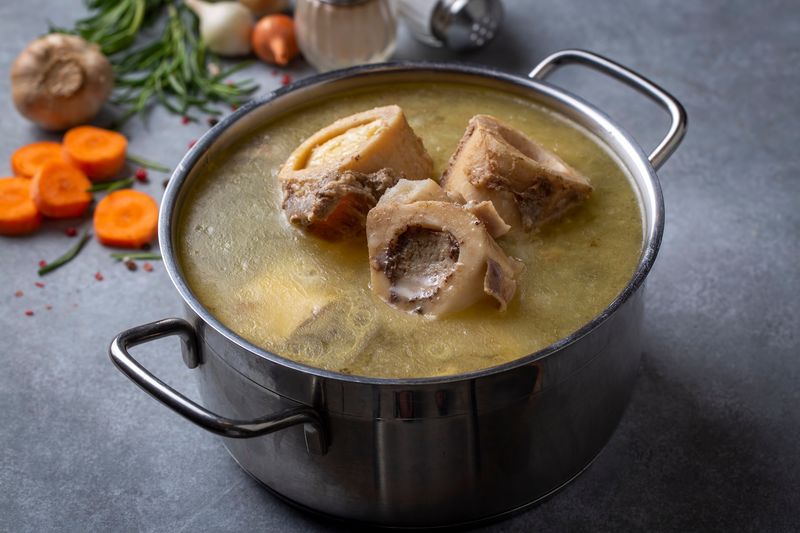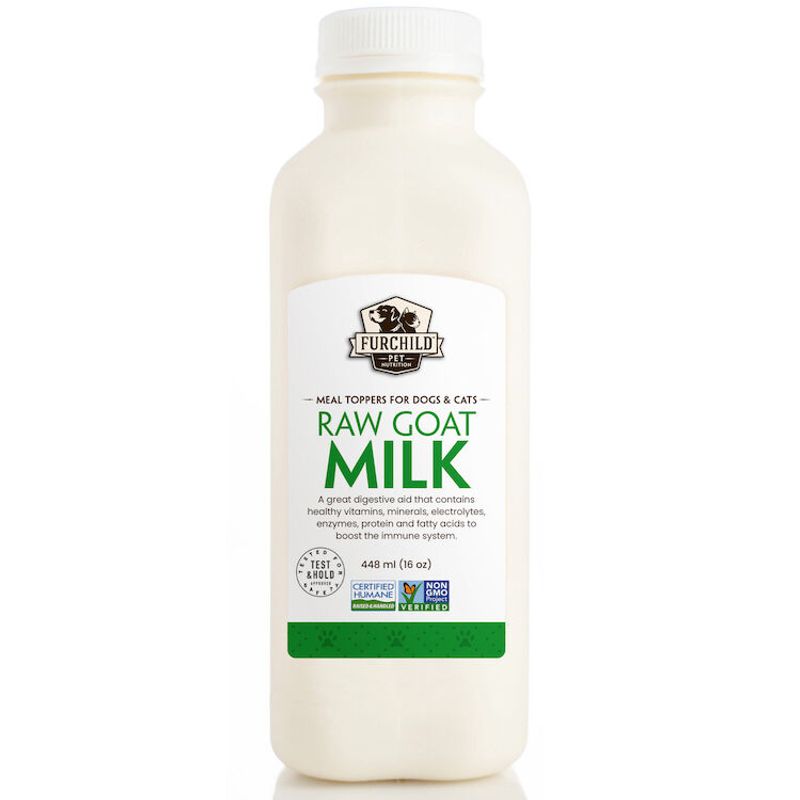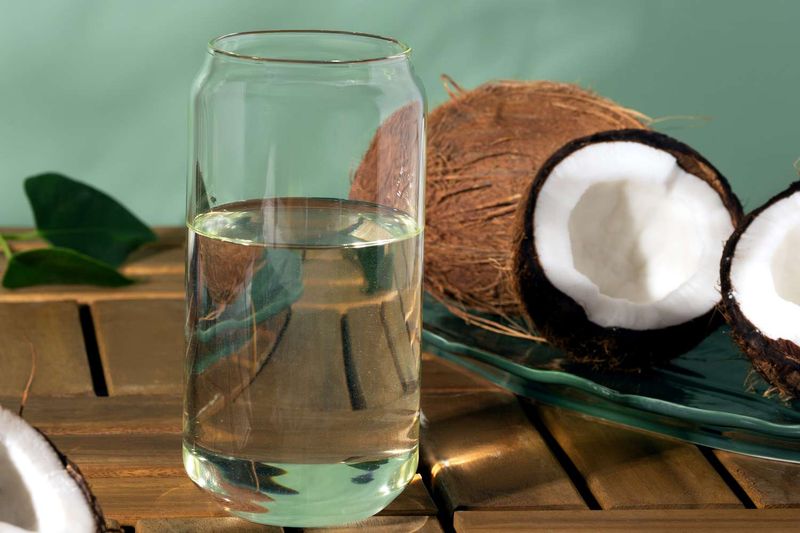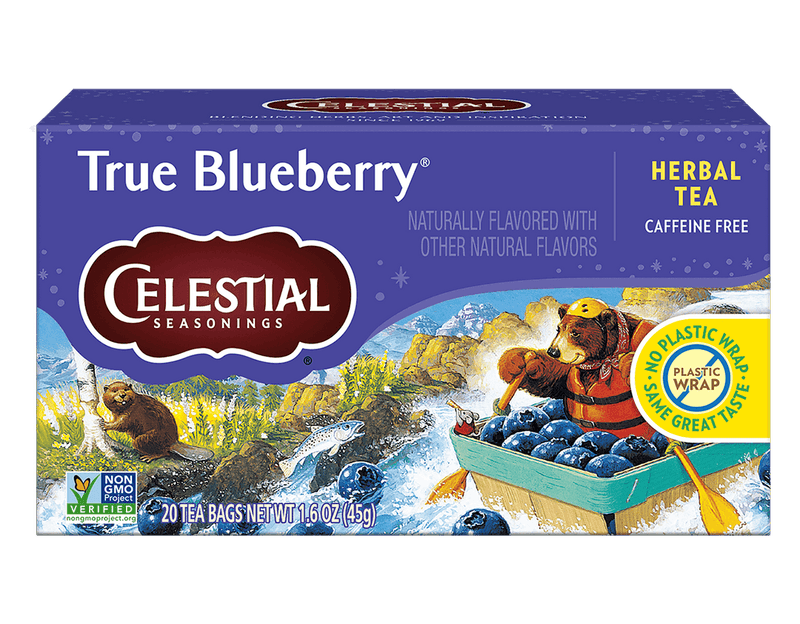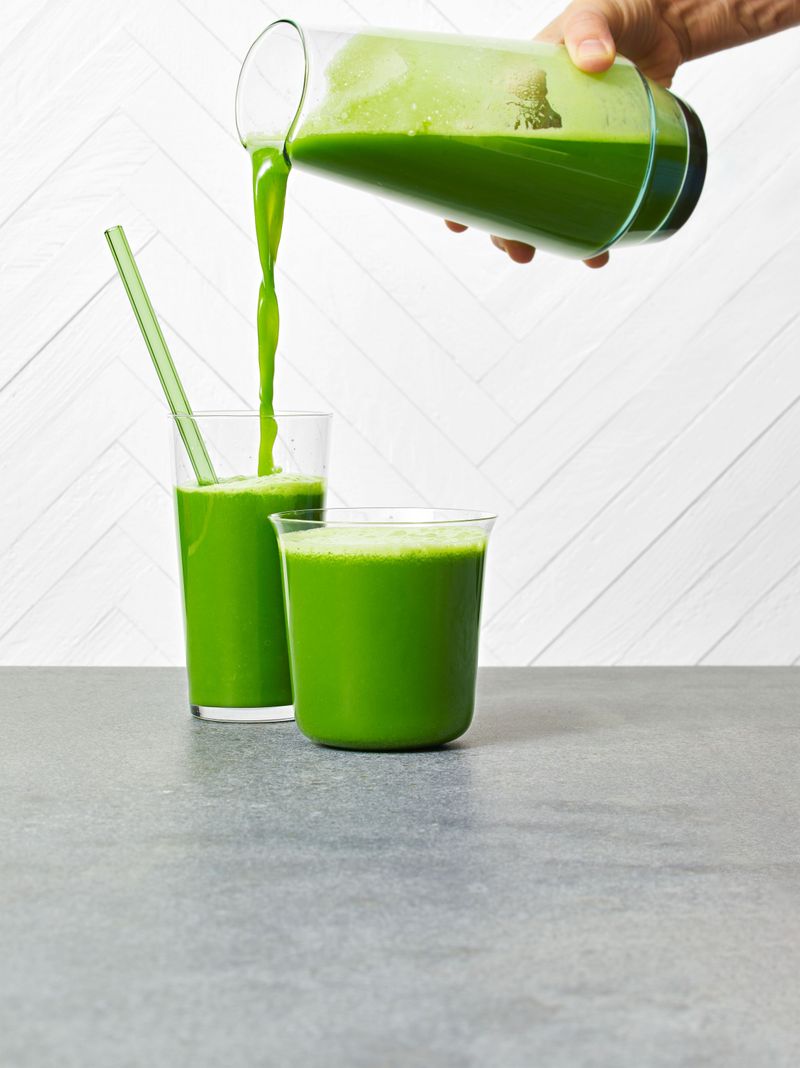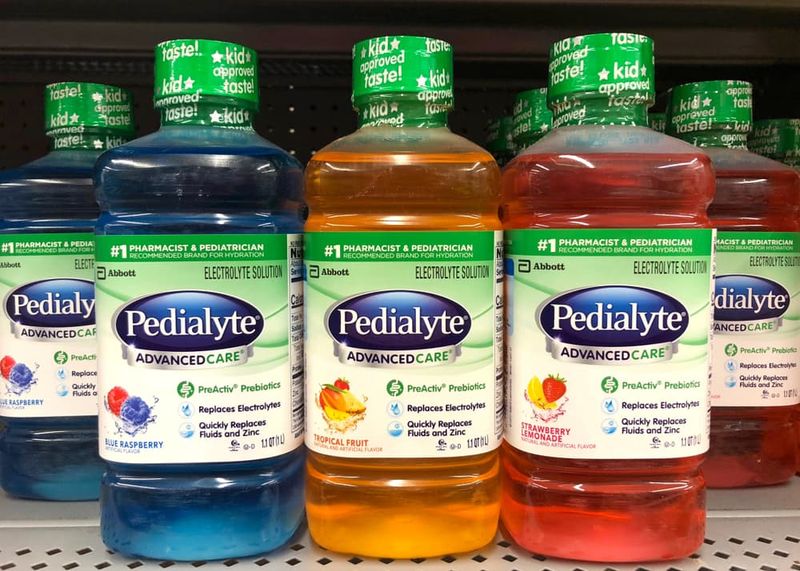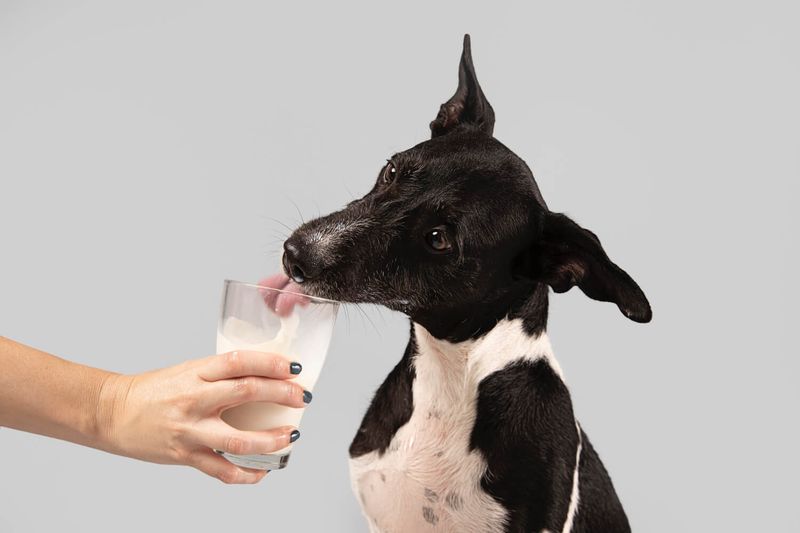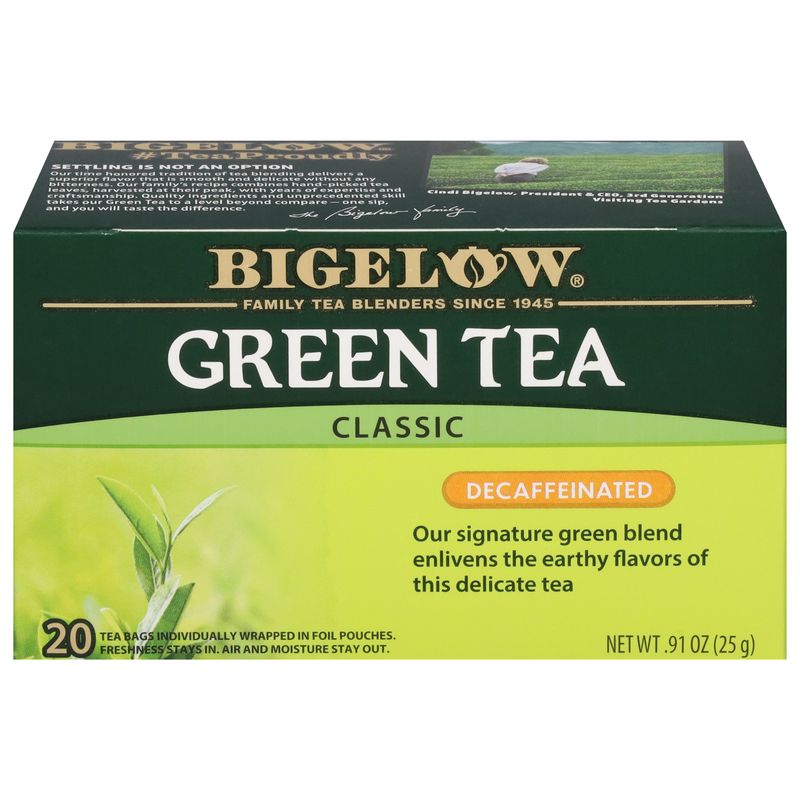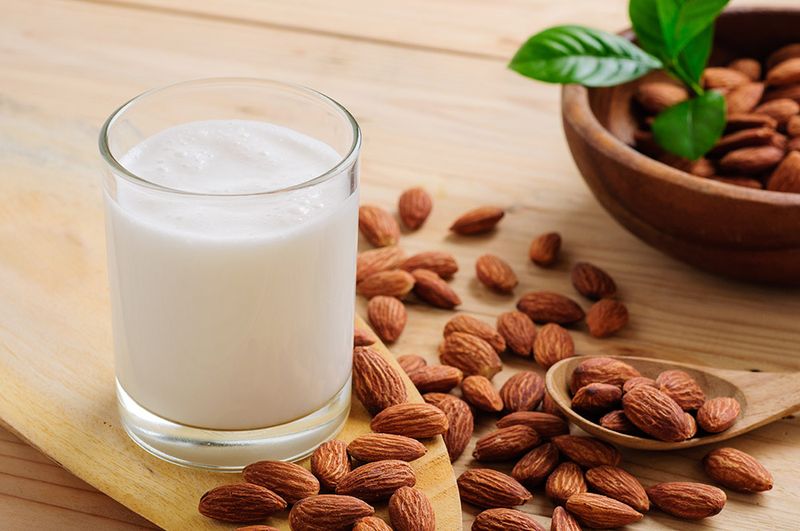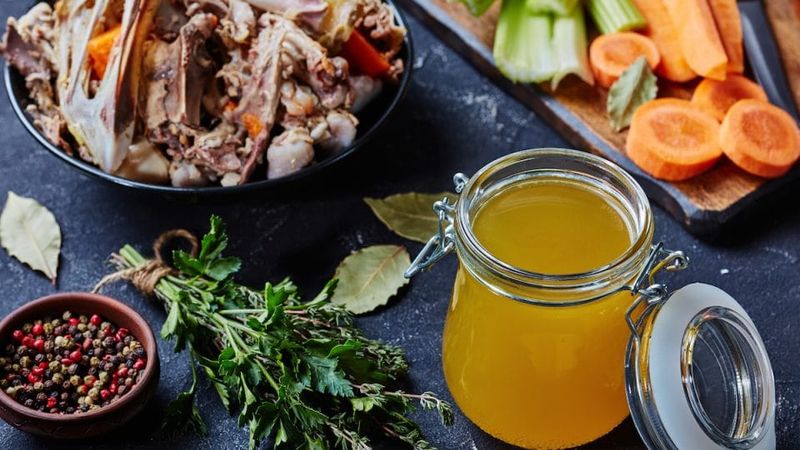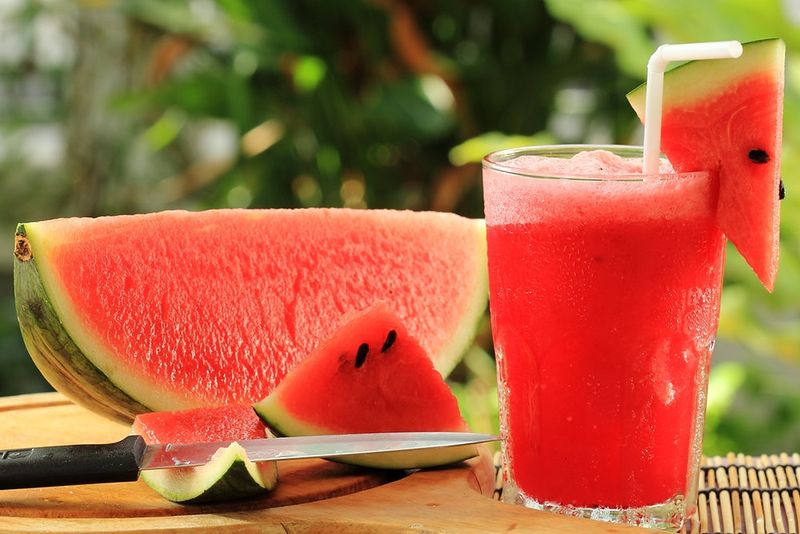What Can Dogs Drink Besides Water? 12 Vet-Approved Alternatives You’ll Want to Try
Water might be your pup’s go-to drink, but sometimes, a little variety can go a long way. Whether your dog is feeling under the weather, recovering from an illness, turning their nose up at the water bowl, or just deserves a little extra pampering, there are safe, healthy alternatives worth exploring. While hydration is essential, it doesn’t always have to come from plain tap water.
Veterinarians agree that certain liquids can offer added benefits beyond hydration—think natural electrolytes, gentle digestive support, or even a little flavor to entice picky drinkers. From nutrient-rich broths to dairy-free “milks” made just for dogs, these alternatives can supplement your pup’s diet in a fun and functional way. Of course, not everything labeled “healthy” for humans is safe for pets, which is why it’s crucial to know what’s truly dog-approved.
We’ve rounded up a list of vet-recommended drinks that are both safe and satisfying for your canine companion. Some you might already have in your kitchen, while others are specialty products made just for dogs. Whether you’re looking to mix things up, cool them down, or support their health in a new way, these alternatives are worth keeping in your pet-care toolkit.
1. Bone Broth: A Nutrient-Rich Sipping Sensation
Homemade bone broth offers dogs a flavorful hydration boost packed with joint-supporting collagen and minerals. Simmer beef, chicken, or turkey bones for hours without onions, garlic, or salt to create this nutritious liquid.
The warm, savory taste appeals to even the pickiest pups, making it perfect for dogs recovering from illness or those needing encouragement to increase their fluid intake. Many veterinarians recommend it for senior dogs with achy joints.
Store your homemade broth in ice cube trays for convenient serving sizes. A frozen bone broth cube also makes a cooling summer treat that keeps your dog happily hydrated during hot weather.
2. Goat’s Milk: Easier Digestion Than Cow’s Milk
Unlike cow’s milk which often causes tummy troubles, goat’s milk contains smaller fat molecules and different proteins that many dogs can digest more easily. Raw or pasteurized versions provide excellent calcium, potassium, and vitamins that support your dog’s overall health.
The natural enzymes in goat’s milk can actually help dogs with sensitive stomachs. Some pet parents report improved digestion after adding small amounts to their dog’s diet.
Start with just a tablespoon to see how your dog responds. Always serve it cool but not ice cold to prevent shocking your dog’s system. For a special treat, freeze it into little popsicles during summer months.
3. Coconut Water: Nature’s Electrolyte Solution
Fresh from the coconut, this tropical drink offers natural electrolytes that help rehydrate active dogs after exercise. The potassium-rich liquid supports heart function and muscle recovery without artificial ingredients found in sports drinks.
Always choose plain, unsweetened varieties without added flavors or sugars. The slightly sweet taste appeals to many dogs, making it easier to get fluids into reluctant drinkers.
Perfect for hot days or after intense play sessions, coconut water can help prevent dehydration. Offer it in small amounts at first – about 1 ounce per 10 pounds of body weight – to make sure your dog enjoys it and digests it well.
4. Caffeine-Free Herbal Teas: Soothing Sips
Chamomile tea can calm an anxious pup or soothe minor tummy troubles. Peppermint tea might help with bad breath and digestion issues. Always brew these herbal teas without any sweeteners and let them cool completely before serving.
Weak ginger tea works wonders for dogs with motion sickness during car rides. The natural compounds help settle their stomachs without medication. Just a few tablespoons before travel might make the difference between a miserable or happy journey. Never use teas containing caffeine, which is toxic to dogs.
Stick with single-ingredient herbal options and introduce them gradually. A ice cube tray of frozen tea makes a refreshing summer treat that many dogs love.
5. Vegetable Juice: Liquid Vitamins Your Dog Will Lap Up
Fresh, unsalted vegetable juice provides concentrated nutrients in liquid form. Carrot juice offers beta-carotene for eye health, while cucumber juice hydrates with a refreshing taste many dogs enjoy.
Always dilute these juices with water to prevent overwhelming your dog’s system. Beet juice contains natural nitrates that may support heart health and stamina. The vibrant color might stain white fur around the mouth temporarily, but the health benefits outweigh this minor inconvenience.
Make homemade veggie juice using a blender and strainer without adding salt or seasonings. Mix different vegetables for varied nutrients, but introduce new juices one at a time to check for any sensitivities your dog might have.
6. Pedialyte: The Dehydration Fighter
Unflavored Pedialyte contains the perfect balance of electrolytes to combat dehydration in sick dogs. Veterinarians often recommend this human product for dogs recovering from diarrhea or vomiting when water alone isn’t enough to restore proper hydration.
The clear, slightly salty liquid replaces crucial minerals lost during illness. Unlike sports drinks, it doesn’t contain excessive sugar or artificial colors that could upset your dog’s system further.
Serve it at room temperature using a syringe for reluctant drinkers or mix it with a bit of low-sodium chicken broth for palatability. Always consult your vet before giving Pedialyte, especially for puppies or senior dogs who may need more specialized care during illness.
7. Kefir: Probiotic Powerhouse
Fermented milk products like kefir contain beneficial bacteria that support gut health and immune function. The tangy taste appeals to many dogs, while the creamy texture makes it an enticing treat.
Plain, unsweetened varieties work best for canine consumption. The probiotics in kefir can help restore balance after antibiotic treatment. Many pet parents notice improved digestion and less gas when adding small amounts to their dog’s routine.
Start with just a teaspoon mixed into food or offered separately. Gradually increase to one tablespoon per 20 pounds of body weight. The live cultures make this drink especially valuable for dogs with sensitive stomachs or those recovering from digestive upsets.
8. Green Tea: Antioxidant Brew
Weak, cooled green tea offers antioxidants that may help fight inflammation and support overall health. The minimal caffeine in properly prepared green tea (steeped briefly and diluted) falls within safe limits for most dogs when given occasionally.
Research suggests the catechins in green tea might have cancer-fighting properties. Some holistic veterinarians recommend it as part of an integrated approach to supporting dogs with certain health conditions.
Always brew it weak, let it cool completely, and start with tiny amounts – just a tablespoon for small dogs. Never add sweeteners or milk. If your dog shows any signs of restlessness or digestive upset, discontinue immediately and stick with completely caffeine-free options instead.
9. Almond Milk: Dairy-Free Alternative
Unsweetened, plain almond milk provides a creamy treat without lactose that upsets many dogs’ stomachs. This plant-based option contains vitamin E and healthy fats that support skin and coat health.
Always check ingredients carefully to avoid xylitol, chocolate, or excessive additives. The subtle nutty flavor appeals to many dogs who turn their noses up at water when medication needs to be mixed in.
Serve just a few tablespoons as an occasional treat rather than a main hydration source. Homemade versions let you control exactly what goes into your dog’s almond milk. Simply blend soaked almonds with water and strain thoroughly to remove all nut particles that could pose a choking hazard.
10. Fruit Infused Water: Tasty Hydration Upgrade
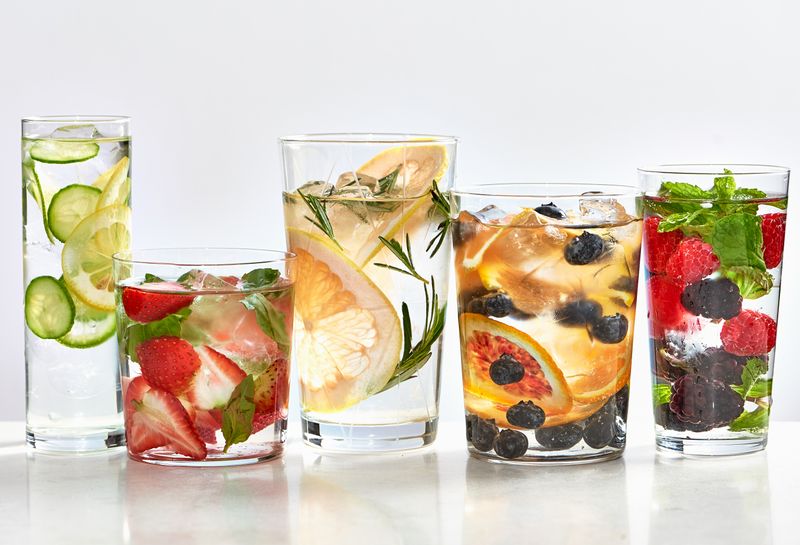
Adding dog-safe fruits to water creates an enticing drink that encourages hydration. Sliced strawberries, blueberries, or watermelon chunks can transform plain water into a refreshing treat. The subtle flavor often appeals to picky drinkers who ignore their regular water bowl. The fruits release vitamins and antioxidants into the water as they soak. Remove all seeds, pits, and rinds before infusing to prevent choking hazards or exposure to harmful compounds. Change the infused water daily to prevent bacterial growth. For extra appeal in hot weather, freeze dog-safe fruits in ice cube trays with water. These flavorful ice cubes can be added to your dog’s regular water bowl for a cooling, tasty surprise.
11. Chicken Broth: Savory Sipping Solution
Low-sodium chicken broth entices even the most stubborn dogs to increase their fluid intake. The familiar, meaty aroma triggers immediate interest from most canines, making it perfect for hiding medications or encouraging drinking during illness.
Homemade versions allow you to control exactly what goes into your dog’s broth. Simply simmer chicken in water without onions, garlic, or salt. The resulting liquid provides both hydration and a protein boost.
Store-bought options work in a pinch, but carefully check labels for excessive sodium, onion powder, or garlic ingredients. Freeze broth in ice cube trays for quick access when needed. Warm it slightly in cold weather for a comforting drink that soothes and hydrates simultaneously.
12. Watermelon Juice: Summer Hydration Hero
Fresh watermelon juice provides a sweet, hydrating option that’s over 90% water. The natural sugars and electrolytes make it perfect for hot days when dogs need extra encouragement to stay hydrated.
Its cooling properties help prevent overheating during summer activities. Simply blend seedless watermelon chunks and strain to remove any pulp that might be difficult to digest. The vibrant pink juice contains lycopene, an antioxidant that supports cell health.
Most dogs eagerly lap up this naturally sweet treat. Serve it in small amounts – about an ounce per 10 pounds of body weight – to prevent tummy troubles from too much natural sugar at once. For added fun, freeze it into popsicles using dog-safe popsicle molds.

